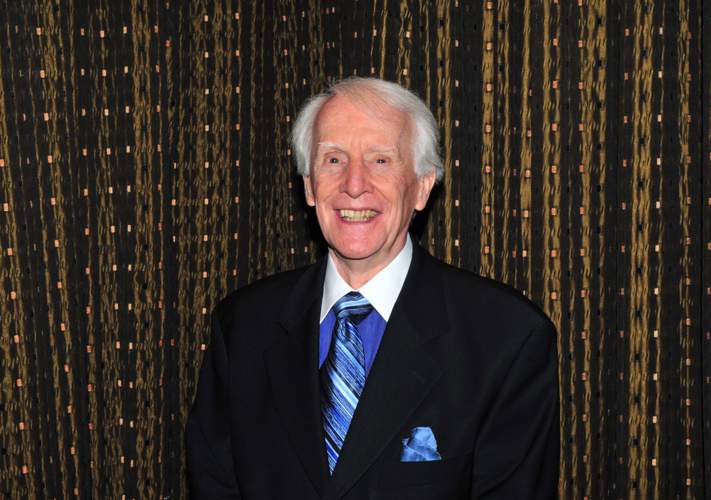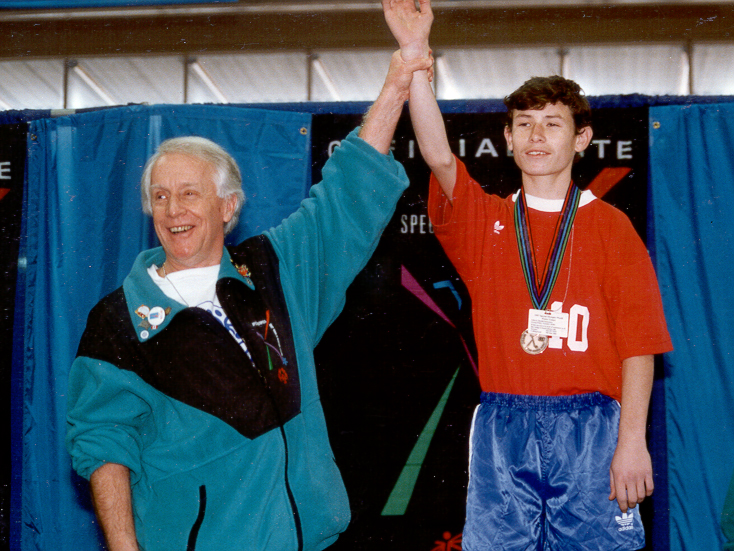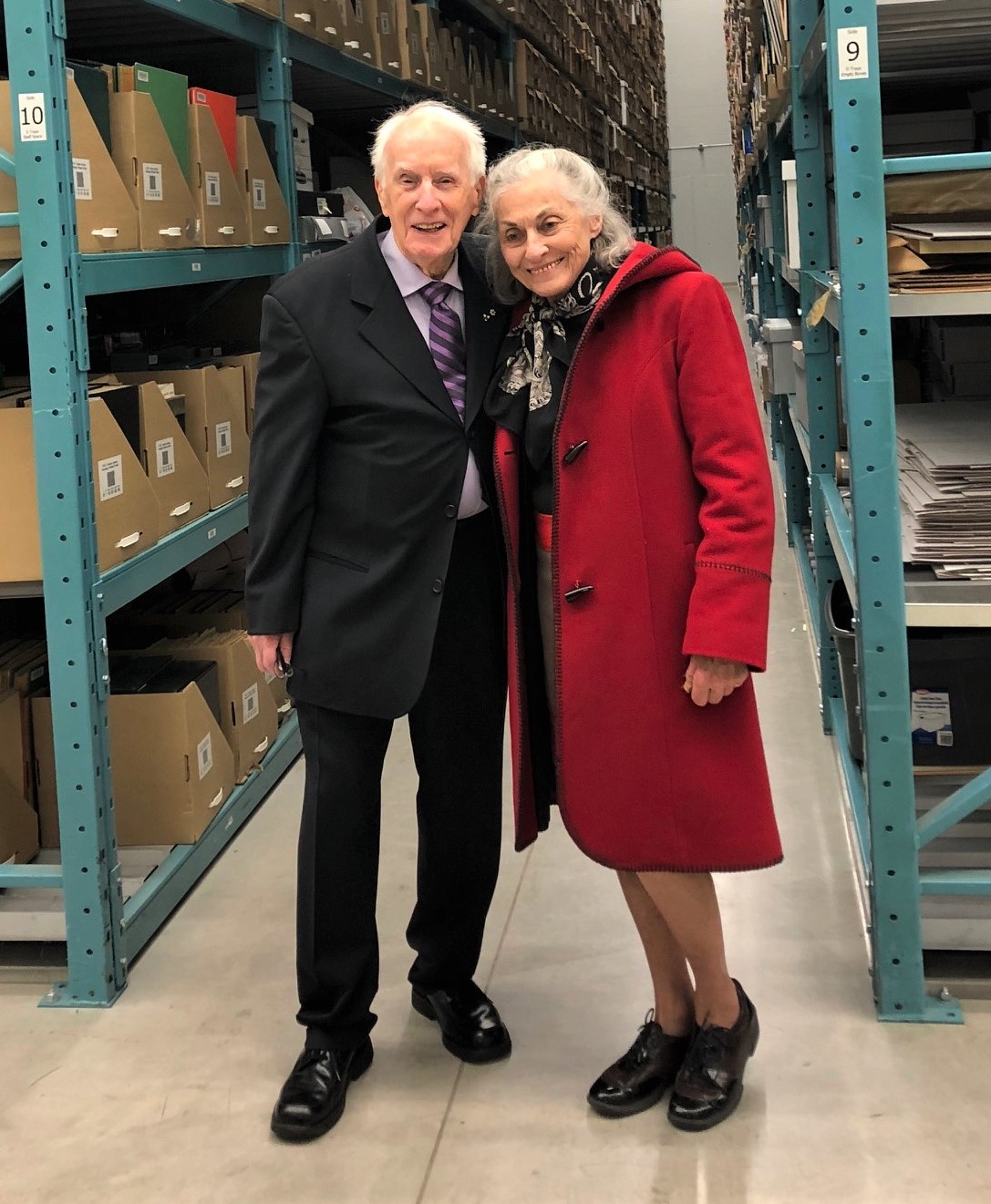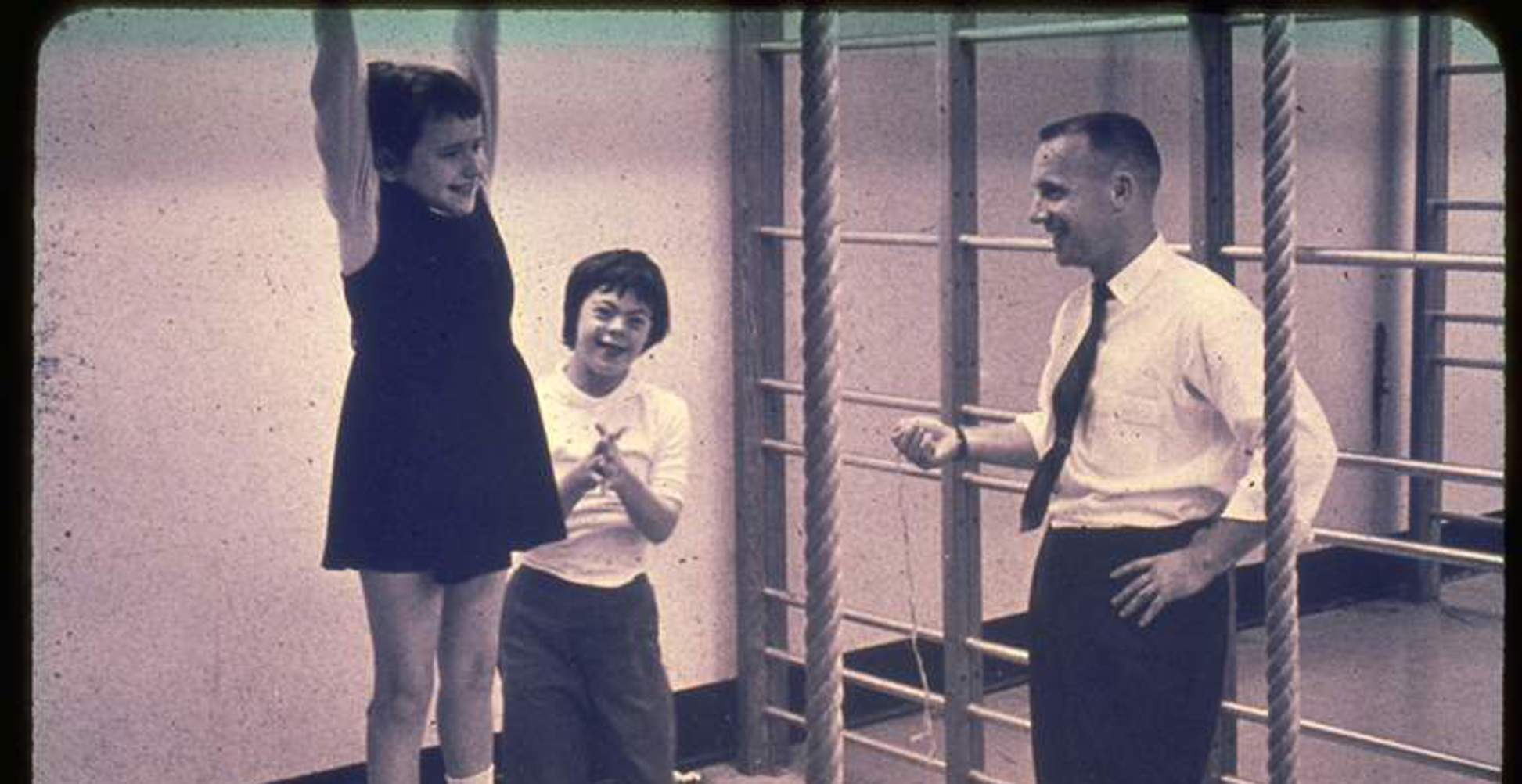Our History

In the early 1960s, a group of students at Toronto’s Beverley School became the test group for Dr. Frank Hayden, a sport scientist at the University of Toronto. Dr. Hayden was studying the effects of regular exercise on the fitness levels of children with an intellectual disability.
Dr. Hayden’s research was nothing short of groundbreaking. It challenged the prevailing mindset of the day – one that claimed that it was the disability itself that prevented children from fully participating in play and recreation. Through rigorous scientific method, Dr. Hayden proved that it was simply a lack of opportunity to participate. Given that opportunity, people with an intellectual disability could acquire the necessary skills to participate in sport and become physically fit.
In other words: sport could have a transformative effect on the lives of those with an intellectual disability.
Transforming the world
Dr. Hayden’s proposal for a National sport competition caught the attention of Eunice Kennedy Shriver, serving as inspiration for the inaugural Special Olympics competition in 1968 in Chicago. Canada was represented by a group of 12 students and a teacher from the Beverley School, as well as Toronto Maple Leafs captain George Armstrong, serving as Honorary Team Captain.
Dr. Hayden also served as the Chicago event’s General Director and eventually went on to work for the Washington-based Kennedy Foundation as the Director of Physical Education and Recreation, working alongside Ms. Kennedy Shriver.
Making history at home.
Harry “Red” Foster, a Canadian broadcast legend and philanthropist, was in Chicago in 1968 to witness the birth of the Special Olympics movement. He was inspired by what he saw and experienced, and worked tirelessly to bring this global force back to Canada.
 Dr. Hayden’s ground-breaking research was the spark that ignited the Special Olympics movement. As a faculty member at the University of Toronto in the early 1960s, his study of children with intellectual disabilities revealed they were half as physically fit as their peers who did not have intellectual disabilities.
Dr. Hayden’s ground-breaking research was the spark that ignited the Special Olympics movement. As a faculty member at the University of Toronto in the early 1960s, his study of children with intellectual disabilities revealed they were half as physically fit as their peers who did not have intellectual disabilities.
It was assumed that their low fitness levels were directly connected to their disabilities. Dr. Hayden’s body of work challenged that mindset – one that claimed it was the disability itself that prevented people from fully participating in play and recreation.
Through rigorous scientific study, Dr. Hayden proved that given the opportunity, people with intellectual disabilities could acquire the necessary skills to participate in sport and become physically fit.
In other words: Sport could have a transformative effect on the lives of people with intellectual and developmental disabilities.
In 1964, Dr. Hayden published a book that included sample lesson plans for educators. Astonishingly, this publication sold 50,000 copies and once again caught the attention of Canadian broadcaster and advocate for people with intellectual or developmental disabilities, Harry "Red" Foster. Together, they embarked on an effort to launch the Special Olympics National Games in Toronto, though their initial endeavors did not come to fruition.
It wasn’t until 1965, when Hayden received a call from the Kennedy Foundation, that his idea started to gain traction. Eunice Kennedy Shriver, sister of late U.S. President John F. Kennedy, was running summer camps for individuals with intellectual disabilities and took a keen interest in Dr. Hayden's research.
This collaboration led to the inaugural Special Olympics Games held at Soldier Field in Chicago on July 20, 1968, where athletes from 25 states and a Canadian floor hockey team, comprised of students from the Beverley School, participated. Harry, witnessing the event, was profoundly moved and declared, "Frank, this is fantastic. We should have this in Canada."
With Foster's support, the first Special Olympics Games in Canada took place in 1969, and Dr. Hayden continued to expand the movement in the United States. He later played a pivotal role in establishing 50 additional Special Olympics organizations worldwide.
Whether it is someone competing at the Special Olympics World Games, or a five-year-old attending Active Start in their local community, Dr. Hayden always believed “sport is the answer.”

Throughout his life, Dr. Frank Hayden received numerous awards and accolades for his monumental contributions. In 1999, he was appointed an Officer of the Order of Canada.
In 2018 Special Olympics Canada endowed the Dr. Frank J. Hayden Chair in Sport and Social Impact at Western University. Alongside this endowment was the donation of many formative documents that created the Special Olympics movement worldwide. This collection includes research, correspondence, historical documents and photographs.
In 2019, Dr. Hayden was inducted into Canada's Sports Hall of Fame. In 2022, he received a promotion within the Order to Companion – the highest level a recipient can receive for Canada’s highest civilian honour. And in 2024, he was granted a star on Canada's Walk of Fame.

Archival Work
In 2018 Special Olympics Canada endowed the Dr. Frank J. Hayden Chair in Sport and Social Impact at Western University.
Along with this endowment was the donation of a large collection of the formative documents that founded the Special Olympics movement worldwide. The collection includes research, correspondence, historical documents and photographs.
